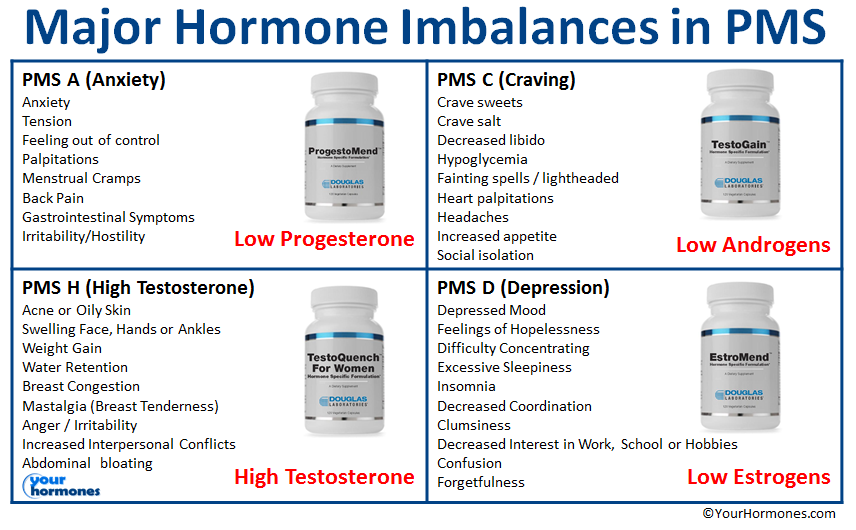
Different Hormone Imbalances and Premenstrual Symptoms
As mentioned in the article about a case of severe PMDD, different hormone imbalances can cause different premenstrual symptoms, with various forms of PMS and PMDD. Low progesterone is the most common hormone imbalance associated with PMS & PMDD. Other common hormone imbalances may include low estrogen levels, low testosterone levels, or even high testosterone. These may occur in different combinations. For example, PMS or PMDD symptoms due to low progesterone and low estrogens and high testosterone is a very common pattern in women with PCOS or PCO-like syndrome.
Most common hormone imbalance that may cause or contribute to PMS or PMDD symptoms include:
Low Progesterone
Low Estrogen
Low Testosterone
High Testosterone
Other Hormone Imbalances and PMS or PMDD
In addition to those four major hormone imbalances that affect premenstrual symptoms, other hormone imbalance that can also affect premenstrual symptoms include:
Low Thyroid Hormones (hypothyroidism)
Blood Sugar Disorders & Insulin Resistance
The Adrenal Glands Role in PMS & PMDD
It is also important to realize that the adrenal glands are as important as the ovaries regarding the production of hormones. In fact, during the first half of the monthly cycle (the follicular phase), 60% of a woman’s progesterone comes from her adrenal glands. The adrenal glands also make some of the androgen metabolites that get converted to testosterone or estradiol. So, if a woman’s adrenal glands are not functioning at their best, she will have premenstrual symptoms. ProgestoMend™ was specifically developed to support the ability of the adrenal glands to make progesterone. Improving the ability of adrenal glands to make progesterone is why ProgestoMend™ is so effective in treating premenstrual conditions. Which brings us to discussing low progesterone premenstrual symptoms.
